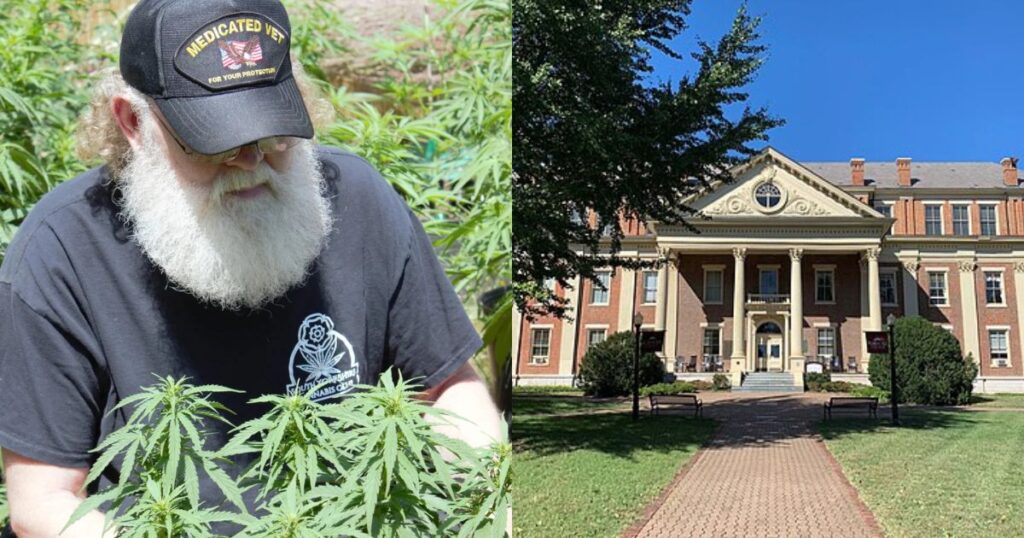Cannabis—the very word has been at the heart of cultural, political, and legal debates for decades. Once stigmatized and relegated to the shadows, cannabis has undergone a tremendous transformation from an outlawed crop to a legal industry across nearly half the United States. Today, this evolution includes a new milestone: the introduction of cannabis studies into higher education.
Ray Fowler, known across the cannabis community as “Doc Ray.” A legacy cultivator from Northern California’s Emerald Triangle, Fowler now finds himself in Roanoke, Virginia, as Roanoke College’s first professor of cannabis studies. His story highlights the astonishing normalization of cannabis, both in society and academia. But it also highlights how colleges are responding to the cannabis industry, offering programs aimed at preparing students to step into this field.
Cannabis Education in Higher Institutions
Gone are the days when cannabis was associated solely with counterculture. Today, it’s a multi-billion-dollar industry. Alongside this economic shift, hundreds of colleges in the U.S.—from community colleges to major universities—now offer cannabis-related programs.
These programs span various disciplines, including cannabis science, policy, social justice, and even cultivation techniques, creating pathways for students to enter careers in health care, agriculture, law, business, and more. Schools like Northern Michigan University, Colorado State University, and Oakland University have led the way with curriculum focusing on cannabis biology, chemistry, and industry practices.
Roanoke College, where Doc Ray teaches, which the Cardinal News recently highlighted, has embraced this trend with two cannabis-focused majors: cannabis science and cannabis social justice and policy. These courses reflect a recognition that cannabis isn’t a fleeting trend—it’s an undeniable part of the economy and culture for the future.
Who Is “Doc Ray”?
Ray Fowler’s path to academia is anything but typical. Known affectionately as “Doc Ray,” Fowler is not your traditional college professor. He doesn’t hold a Ph.D.—in fact, he holds no formal degree at all. His expertise lies in a lifetime of hands-on experience with cannabis cultivation, particularly in the famed “Emerald Triangle” of Northern California.
Fowler’s transition from outlaw cultivator to esteemed academic is as extraordinary as it is symbolic of cannabis’ changing status in the United States. During the height of the War on Drugs, Fowler lived a secretive life, learning to grow cannabis through trial and error, often while evading law enforcement. By his own admission, “There were no books, no instruction manuals. We were pecking and hunting.”
Despite those adversities, Fowler became a legend within cannabis circles. Known for developing high-quality strains like “Blue Skunk,” he holds five patents on unique cannabis genetics and has become a sought-after consultant for companies in the cannabis industry. His most significant contributions, however, revolve around medicinal cannabis, helping individuals manage conditions like PTSD and childhood epilepsy.
Why Colleges Need Experts Like Doc Ray
The rise of cannabis education begs the question: Where do you find qualified instructors for a field once considered illegal? With little formal education available during its prohibition, cannabis knowledge often resided with the cultivators, patients, and advocates who practiced outside the law.
That’s where pioneers like Doc Ray come in. Despite his unconventional background, Fowler brings unparalleled expertise in cannabis cultivation, medicinal applications, and the industry’s complex history. His hands-on knowledge makes him an invaluable resource for students studying cannabis, blending academic inquiry with lived experience.
Fowler sees his role at Roanoke College as an opportunity to instill respect for the plant and emphasize quality over quantity in a market-driven industry. “I honor Mother Ganja for what she does,” he says, contrasting his ethos with what he sees as corporate greed driving the modern cannabis market.
The Normalization of Cannabis Education
Fowler’s appointment at Roanoke College is an example of a broader societal shift. Conversations about cannabis have moved beyond legalization debates to focus on integration—integrating cannabis into commerce, health care, and even educational curriculums. Colleges offering cannabis studies programs are further solidifying this normalization, contributing to an industry that now employs over 440,000 people nationwide.
What’s more, these programs don’t just serve the cannabis industry; they also challenge lingering stigmas surrounding the plant. By teaching subjects like cannabis science and policy, colleges are presenting cannabis as a legitimate area of study, deserving of intellectual rigor and respect.
The inclusion of cannabis studies in colleges across the U.S. reflects how far we’ve come in normalizing cannabis. Figures like Doc Ray serve as bridges between the plant’s countercultural past and its professional future, showcasing the value of lived experience alongside academic inquiry.
As the industry continues to grow, programs like those offered at Roanoke College will play a vital role in shaping its next generation of leaders. Students will leave these programs armed not just with knowledge, but also with a respect for the plant and its potential—keeping the focus, as Fowler says, on “Mother Ganja” and the people she serves.

















